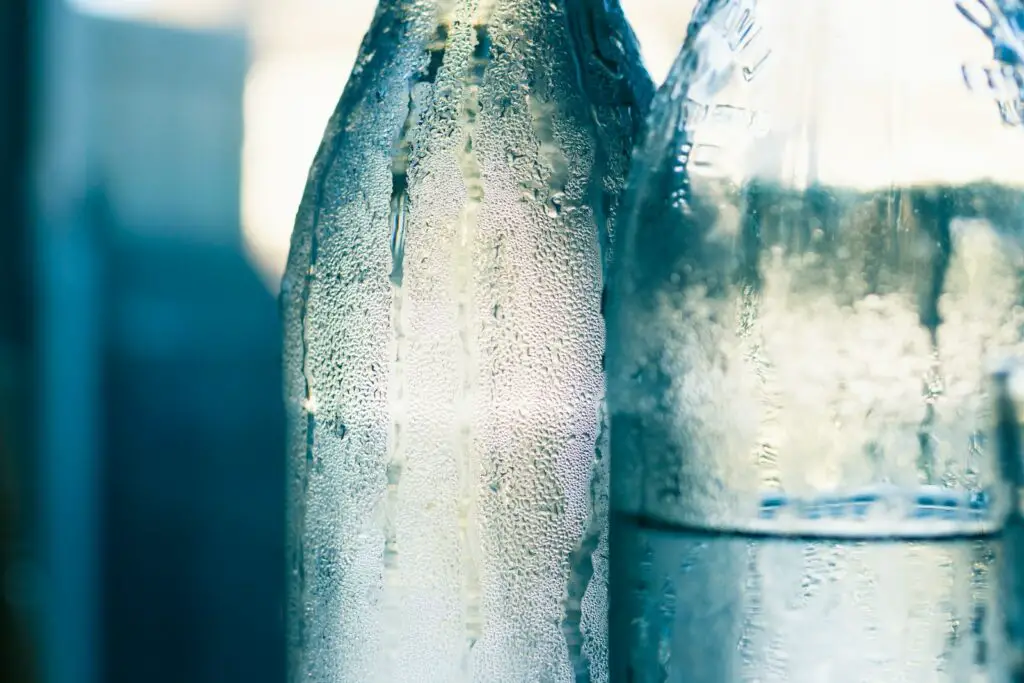The cost of water in Dubai is a critical concern, as the desert city faces high levels of scarcity.
This article will analyze residential and commercial rates for water in Dubai and explain how various factors play into its pricing structure.
It’s evident that due to its limited availability, this precious resource has become an expensive commodity that individuals and businesses must find ways to manage effectively.
Water Sources and Infrastructure in Dubai
Dubai has invested heavily in water infrastructure to guarantee a steady supply of water for its citizens and businesses.
This includes desalinated seawater, groundwater, and treated wastewater that is each sourced through different systems:
1. Desalinated Seawater
Dubai relies heavily on desalination to provide drinking water for its citizens.
The city is home to multiple large-scale plants that use different methods of transforming seawater into potable liquid.
With a combined production capacity of around 470 million imperial gallons per day (MIGD).
This data was provided by the Dubai Electricity and Water Authority (DEWA).
2. Groundwater
Dubai has groundwater as another source of water.
However, its use is becoming more restricted because of worries about over-extraction and contamination.
The Dubai Municipality maintains multiple wells across the city to access water from underground aquifers.
3. Treated Wastewater
Dubai has made substantial investments in wastewater treatment facilities to guarantee that treated water is safe for reuse concerning irrigation and landscaping.
The metropolis houses various sizeable wastewater plants which take advantage of sophisticated techniques to cleanse the water of contaminants and pollutants.
Dubai has taken major steps to ensure efficient water distribution throughout the city.
It has constructed a network of pipelines and storage facilities to promote conservation.
Additionally, “they launched my Water Pledge” to encourage people to reduce their water consumption by 20 percent.
These efforts have been successful in helping Dubai maintain its reliable supply of fresh water.
Average Cost of Water in Dubai
The World Bank’s report indicates that the cost of water for commercial and industrial purposes in Dubai is comparatively higher than in other cities within the Middle East.
The elevated expenses are attributed to energy costs, as desalination plants require significant electricity to generate drinkable water.
It can be seen then how usage affects price when it comes to accessing clean drinking supplies:
Commercial users pay more due to increased demand, while residential consumers have lower rates because they use smaller quantities.
Cost of Water for Residential Use In Dubai
Dubai residents pay an average of AED 215 (USD 58) monthly for their water bills, calculated using a tiered pricing system.
The first tier includes a fixed amount of water priced at 2.50 dirhams (approximately 68 cents in US currency) per liter.
Additional tiers are charged higher rates depending on how much the household uses.
A single water bottle will cost about USD 0.50, while you can purchase one gallon for only USD 0.15, significantly cheaper than individual bottles!
Cost of Water for Commercial and Industrial Use
In Dubai, commercial and industrial users pay more for water than residential consumers.
The cost of DEWA water is determined by the type of industry and amount used; hospitality businesses typically have a higher rate than other industries.
For large-scale customers, there is an obligation to install meters to measure consumption levels which allows DEWA to charge based on actual usage.
The minimum price per Imperial Gallon (1IG = 4.54 liters) when using a business tariff is 3.5 fils.
Comparison of Dubai Water Costs to Other Major Cities
A recent Global Water Intelligence report revealed that the water cost in Dubai is significantly higher than in other major cities worldwide.
At USD 1.05 per cubic meter, it surpasses London’s average rate of USD 0.40 and New York City’s USD 0.56 per cubic meter, respectively.
The World Bank’s report found that the cost of water for commercial and industrial users in Dubai is significantly higher than in other cities in the Middle East.
This is mainly due to its reliance on energy-intensive desalination plants, which add an extra expense to providing clean drinking water.
Factors Affecting Water Costs in Dubai
Due to its limited natural water resources, Dubai’s growing population and booming economy have strained its water supply.
Consequently, this has resulted in higher-than-average costs for accessing fresh water in the city compared to other places around the world.
To ensure effective management of this resource, it is essential that we understand all factors contributing to these increased prices such as:
1. Energy Costs
As reported by DEWA, the cost of desalinated water in Dubai is largely determined by the expense of energy used in the process.
Approximately 90% of this cost can be attributed to energy consumption, making it a major factor impacting the price paid for drinking water produced through desalination.
2. Infrastructure and Maintenance
The high cost of water in Dubai is partly due to the expensive infrastructure and maintenance required.
The city has invested largely in constructing water treatment plants, pipelines, and distribution networks for a reliable water supply.
However, this necessitates ongoing costs for upkeep which adds to the total expense.
3. Water Conservation Measures
The government of Dubai has taken action to conserve water and cut back on consumption.
The Dubai Integrated Energy Strategy aims for a 30% decrease in electricity and water usage by 2030, while the utilization of treated wastewater for irrigation will help drive down costs.
Additionally, energy-efficient appliances and fixtures have also been promoted as part of this effort.
4. Water Scarcity
Despite its location in a region with limited water resources, Dubai has implemented several initiatives to increase efficiency and reduce waste.
Smart water meters have been installed across the city while leak detection programs are being used to help identify potential losses of precious supply.
These efforts save citizens money and protect them from disruptions due to expensive imported water supplies.
5. Water Quality
The cost of water in Dubai is heavily influenced by its quality.
Over-extraction of groundwater has caused the deterioration of water, necessitating more investments in treatment technologies to make it usable.
Desalination from seawater also requires intensive processing, further increasing this precious resource’s price tag.
To sum up, water is a fundamental necessity in Dubai, and its price reflects the city’s endeavor to guarantee a dependable supply of this resource for citizens and businesses.
Numerous elements contribute to the high cost of water, such as energy, infrastructure upkeep costs, and investment in new technologies meant to increase efficiency and reduce consumption.
The government has taken several measures to control these expenses while also encouraging conservation strategies which will be decisive for securing sustainable access to water into the future.
Reference:
- Guide2Dubai | DEWA Utility Bills – https://www.guide2dubai.com/living/expat-life/dewa-utility-bills
- DEWA | Water Tariff Calculator – https://www.dewa.gov.ae/en/consumer/billing/tariff-calculator








